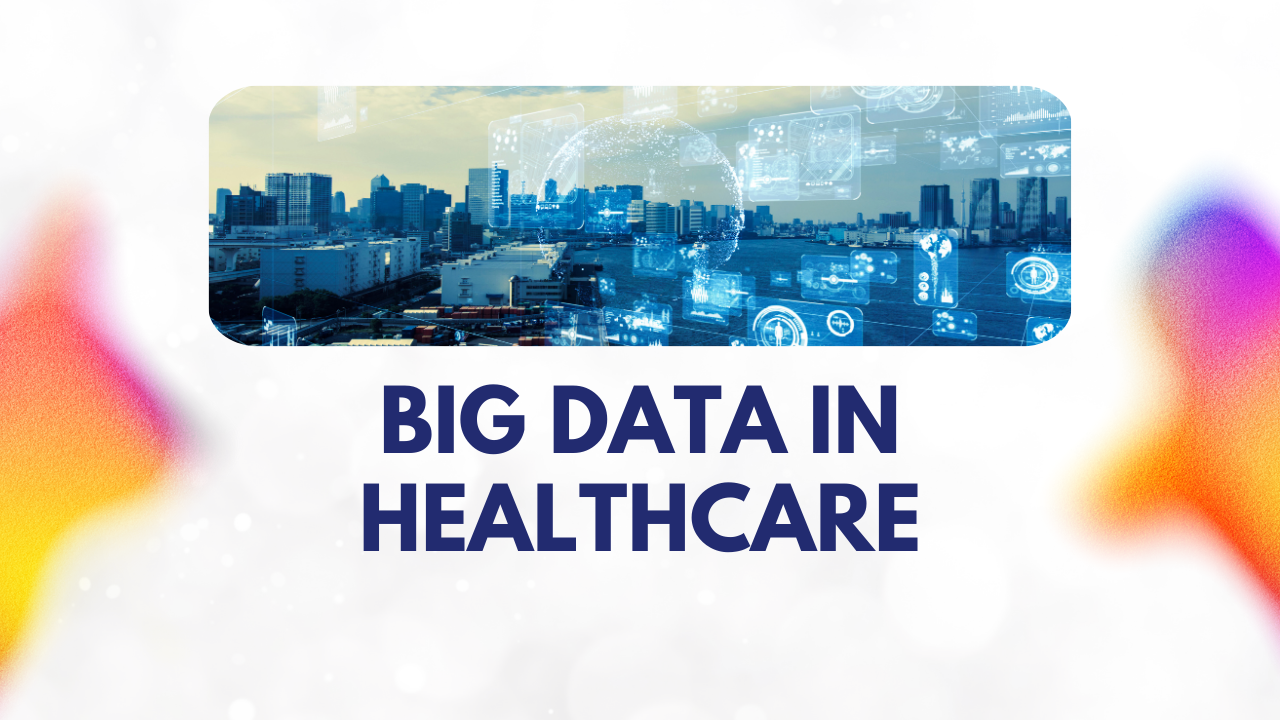In today’s digital age, the healthcare sector is experiencing a monumental transformation, driven by the advent of big data. With the proliferation of electronic health records (EHRs), wearable devices, and mobile health applications, the volume of healthcare data generated is staggering. This wealth of information is not just a byproduct of technology; it represents a significant opportunity to enhance patient care and advance medical research. This blog explores how big data is revolutionizing the healthcare landscape, improving patient outcomes, and facilitating groundbreaking research.
Understanding Big Data in Healthcare
Big data in healthcare refers to the enormous volume of data generated from various sources, including EHRs, lab results, imaging studies, genetic information, and patient-reported outcomes. This data is characterized by its volume, velocity, and variety—three Vs that define big data.
- Volume: The sheer amount of data generated is immense, with healthcare organizations managing terabytes to petabytes of information daily.
- Velocity: Data is generated at unprecedented speeds, necessitating real-time analysis to derive actionable insights.
- Variety: Healthcare data comes in various formats, including structured data (like databases) and unstructured data (such as clinical notes and images).
Transforming Patient Care
1. Personalized Medicine
Big data allows for the development of personalized treatment plans tailored to individual patients. By analyzing data from genomics, lifestyle factors, and previous health records, healthcare providers can predict how patients will respond to specific treatments. This shift from a one-size-fits-all approach to personalized medicine enhances the effectiveness of treatments and minimizes adverse effects.
2. Predictive Analytics
Healthcare providers leverage predictive analytics to identify potential health risks and intervene before they escalate into serious conditions. For instance, data analysis can help predict which patients are at risk of developing chronic diseases, allowing for proactive measures to be taken. This capability not only improves patient outcomes but also reduces healthcare costs by preventing hospitalizations.
3. Enhanced Patient Engagement
Big data fosters improved patient engagement through personalized communication and educational resources. Patients can receive tailored health advice, reminders for medication, and alerts for necessary check-ups based on their health data. This personalized approach increases adherence to treatment plans and empowers patients to take charge of their health.
Advancing Medical Research
1. Accelerating Drug Discovery
The pharmaceutical industry is utilizing big data to streamline the drug discovery process. By analyzing vast datasets, researchers can identify potential drug candidates, understand disease mechanisms, and predict patient responses to new medications. This data-driven approach significantly shortens the time required to bring new drugs to market, ultimately benefiting patients in need of effective treatments.
2. Real-World Evidence
Big data enables researchers to gather real-world evidence about the effectiveness and safety of treatments outside of controlled clinical trials. By analyzing data from diverse patient populations, researchers can uncover insights that inform treatment guidelines, leading to more informed clinical decisions.
3. Collaborative Research Efforts
Big data promotes collaboration among researchers, healthcare providers, and institutions. By sharing datasets and insights, the healthcare community can address complex health issues more effectively. Collaborative research efforts can lead to breakthroughs in understanding diseases, improving treatment protocols, and enhancing patient care on a broader scale.
Challenges and Considerations
While the potential of big data in healthcare is immense, several challenges must be addressed to fully realize its benefits:
- Data Privacy and Security: Protecting patient information is paramount. Healthcare organizations must implement robust security measures to safeguard sensitive data while complying with regulations such as HIPAA.
- Data Integration: Integrating data from various sources can be complex. Ensuring that disparate systems can communicate and share information effectively is essential for harnessing the power of big data.
- Data Quality: The accuracy and reliability of data are crucial for meaningful analysis. Establishing standards for data collection and management is necessary to ensure high-quality data.
- Skilled Workforce: There is a growing demand for professionals skilled in data analytics and interpretation within the healthcare sector. Investing in training and education is vital to build a workforce capable of leveraging big data effectively.
Conclusion
Big data is undeniably revolutionizing the healthcare landscape, transforming patient care and advancing medical research. By harnessing the power of data, healthcare providers can deliver personalized treatments, enhance patient engagement, and make informed decisions that improve outcomes. Additionally, researchers can expedite drug discovery and develop a deeper understanding of diseases through collaborative efforts.
As the healthcare sector continues to embrace big data, addressing the associated challenges will be crucial for realizing its full potential. The future of healthcare is bright, driven by data-driven innovations that promise to enhance the quality of care and improve the health of populations worldwide.
